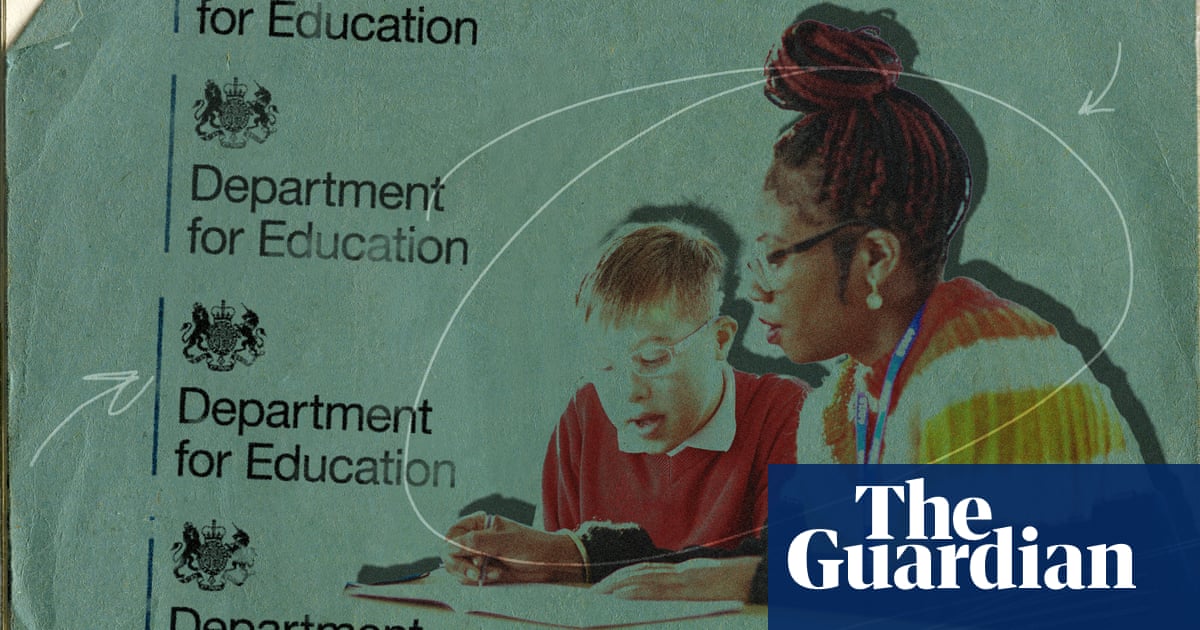
More than £100m was spent last year by local authorities and the government on failed efforts to block support for children and young people with special educational needs in England, according to analysis by the Guardian.
The enormous cost in legal fees and staff resources came after councils won just 136 out of more than 10,000 tribunals in 2022-23, a success rate of 1.2%, as record numbers of families took to the courts to challenge councils over agreements known as education, health and care plans (EHCPs).
Experts said the surging numbers of appeals and mounting costs were evidence that special education provision was becoming an adversarial battle between cash-strapped councils and desperate families, with the National Audit Office among those recommending that “wholesale reform” was needed.
A spokesperson for the Independent Provider of Special Education Advice, a charity providing free legal support to families, said: “It’s hard to avoid the conclusion that local authorities must calculate, at some level, that it costs them less to contest tribunal appeals, even if they lose, than to provide every child and young person with what the law entitles them to as a matter of course – because the majority of families don’t [or] can’t appeal.”
Arooj Shah, the chair of the Local Government Association’s children and young people board, said: “Councils fully recognise the right of families to take appeals to tribunals. However, the fact a significant number of cases are being taken to a tribunal hearing is symptomatic of a system that is failing for families, and councils too, who want to provide the very best for every child, in spite of the rising need for support and financial pressures.
“These show that reform of special educational needs and disabilities [Send] services is urgent and essential.”
The number of children applying for and being granted EHCPs has shot up in recent years as school and council budgets have dwindled, leaving EHCPs as the only way for families to get extra funding and support for a child and their place of education.
Department for Education (DfE) figures show that nearly one in 19 children aged between five and 15 in England now have an EHCP, which can name a school for the child to attend and detail the additional support they need to be given, paid for out of a local authority’s high-needs budget.
In 2022-23 the Send tribunal registered 13,658 appeals against EHCP decisions, a 24% increase from the 11,052 the previous year. The latest data, published this month, showed that tribunal costs will continue to surge after 21,000 appeals were registered in 2023-24 – an annual increase of 55% – and only 17,000 were concluded, adding to the 9,000-case backlog seen earlier this year.
Of the 13,658 tribunals registered in 2022-23, 7,829 were decided fully or partially in favour of the appealing families. Detailed analysis by Pro Bono Economics, updating data from government research compiled for the DfE and Ministry of Justice (MoJ), suggests that the cost to councils for each appeal averaged about £8,500, equivalent to £67m. Tribunal fees charged to the MoJ and the DfE totalled close to £20m.
Of the remaining tribunals, 2,556 were conceded by councils, while 1,187 were withdrawn, but even those cases required staff time and costs amounting to about £19m, for a combined total of £105m. The nearly 2,000 remaining appeals were added to the tribunal’s backlog.
The Council for Disabled Children, which represents more than 300 voluntary and community organisations, said: “To relieve the pressure on tribunals and provide the essential services that underpin healthy and happy childhoods, local authorities must be adequately resourced, including investment in workforce development.
“Government needs to commit targeted investment to create the capacity to break these unhelpful cycles. The stabilisation of local government is a critical prerequisite for the much-needed reforms to the Send system.”
Georgina Durrant, a Send specialist and head of inclusion at the educational publisher Twinkl, said: “We know public services have been decimated across the board and this is reflected in councils not meeting the legal deadlines for EHCPs. There are also concerns that the bar for EHC needs assessment has been raised to reduce costs.”
Shah said the government needed to provide “sustainable long-term funding” for councils as well as writing off the £3.2bn deficits in high-needs spending that local authorities had accrued, which is forecast to reach £5bn by 2026.
A DfE spokesperson said: “Every child deserves the opportunity to achieve and thrive at school, but at the moment far too few are being given that chance.
“The far-reaching reform families are crying out for, and this government is driving, will take time, but with a greater focus on mainstream provision and more early intervention – kickstarted with our significant investment into Send at the budget – we will deliver the change that is so desperately needed.”
On Friday MPs on the Commons education select committee announced an inquiry into Send, with a focus on finding solutions.
Labour MP Helen Hayes, who chairs the committee, said: “What we are hoping to do is to focus on where reform is needed, what good practice could look like and where can we learn lessons.”
Bridget Phillipson, the education secretary, this month announced a £740m capital allocation for mainstream schools to adapt buildings and facilities in order to accept more Send pupils.
Source: theguardian.com


















